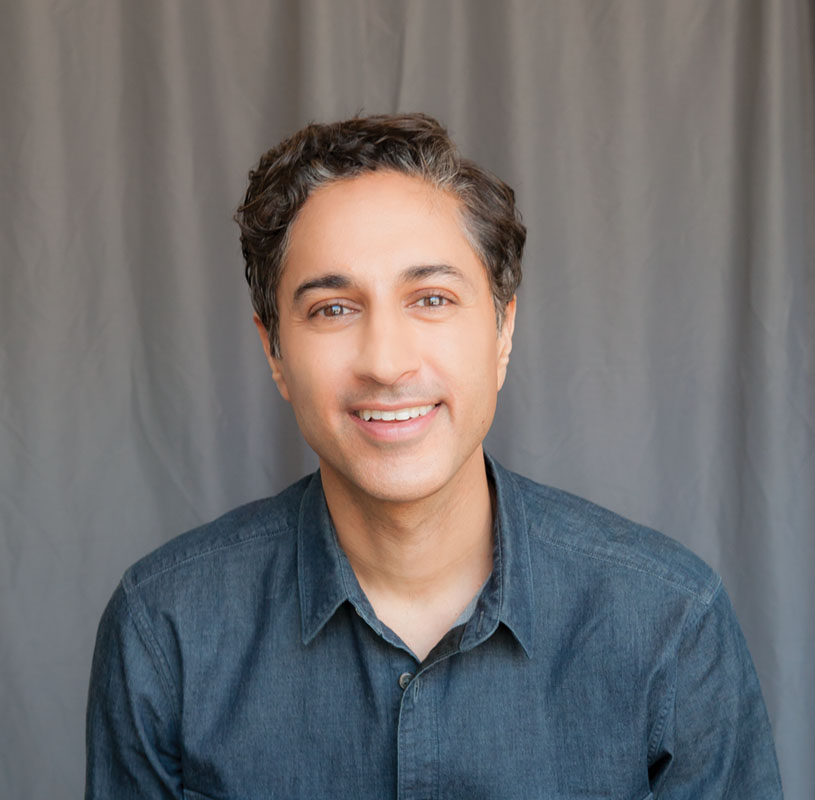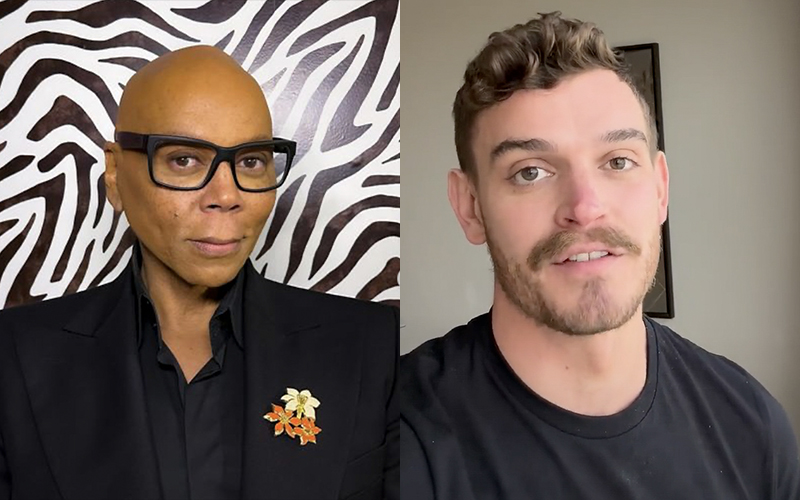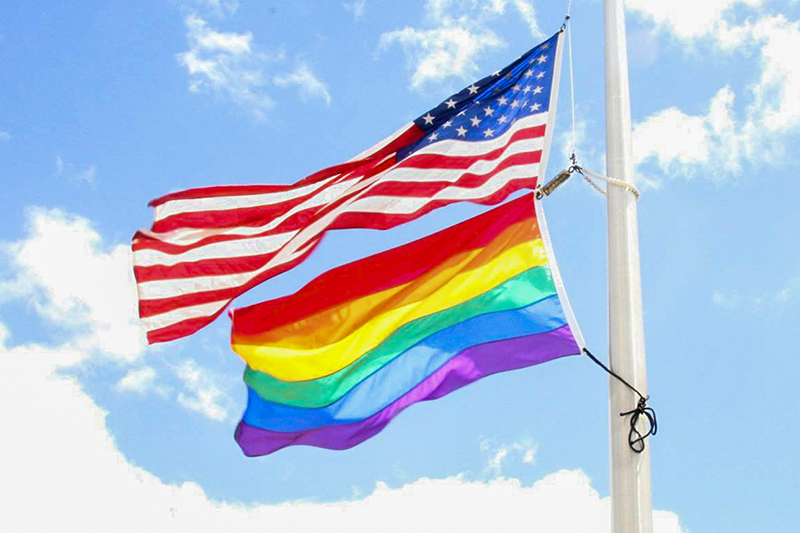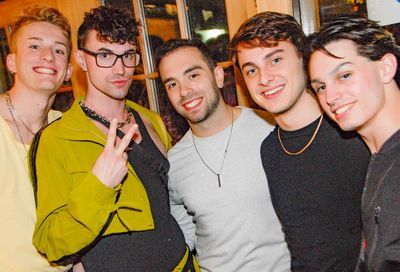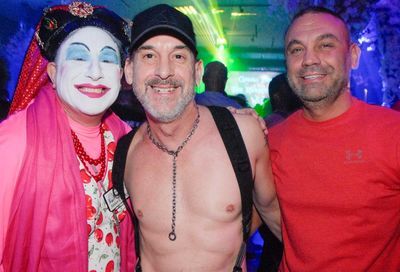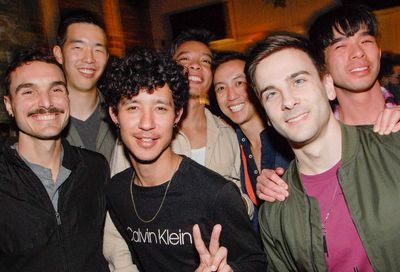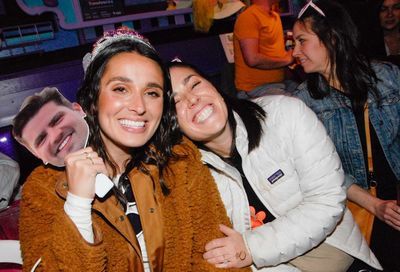Pulse: One Year Later
What has changed for LGBTQ people since Pulse?

One year ago, America woke to a horrific tragedy. Armed with a gun and filled with hate, one man walked into Pulse nightclub in Orlando and gunned down 49 people. It was the country’s worst mass shooting in modern history. But more than that, it was a direct attack on the LGBTQ community, a knife plunged into the heart of the ideal of “safe spaces.” It was also an assault on the Latinx community, with the majority of victims of Latino descent. LGBTQ people reeled. America reeled. The world stopped for a day, consumed with the grief and pain of that moment.
In the 12 months that followed, we’ve witnessed incredible highs, from the outpouring of support in the wake of the attacks to the ever-increasing visibility of LGBTQ people in all aspects of society. But we’ve also had dramatic lows, from the advancement of anti-transgender “bathroom bills” to the apparent attempts to erase recognition of LGBTQ people under the Trump administration. In the year since Pulse, what exactly has happened for LGBTQ people? And will safe spaces ever truly be safe again? We reached out to the local LGBTQ community to find out.
How has life changed for the LGBTQ community since the Pulse shootings?
David M. Pérez, Director of Development, LULAC: Since the tragedy in Orlando, there have been more openings for conversations about the intersectionality of oppression and identities, such as LGBTQ, Latino, and people of color. The frustration of the LGBTQ movement’s refusal to invest significant resources in the fledgling infrastructures of LGBTQ Latino groups has grown.
I have seen LGBTQ Latino advocates who left Orlando return home to their state of Florida. Without a job or resources, they rededicated their lives to healing their home communities, building up non-profit, government, and philanthropic infrastructures in Orlando to rebuild and invest in their gente (people).
Nicholas Benton, Publisher, Falls Church News-Press: It has been mixed. On the one hand, the outpouring of public support for LGBTQ issues has grown. On the other hand, so has the hate and bigotry, due in no small part to the impact of the Trump campaign/presidency.
Douglas Yeuell, Executive Director, Atlas Performing Arts Center: Acts of terrorism are exercises in horrific futility. We survive in spite of it all. Sad that a common enemy is what brings our humanity together and puts the fight and plight of the LGBTQ community on the world stage.
Charles King, General Manager, The Baltimore Eagle: LGBTQ Culture seems to be more aware of their surroundings, and more aware of the hate and ignorance across our country since the Pulse Shootings. As a community we have become stronger and less tolerant of those seeking to hurt us as a whole. I also believe that the Pulse Shootings have allowed for more compassion towards our community with regard to the general population. People realize that love is never the enemy, and hate is what we need to extinguish.
Chris Allen, President, Log Cabin Republicans of D.C.: The LGBTQ community is a force to be reckoned with. After the tragic attack at Pulse, our community united in solidarity, we held vigils, we raised funds for the victims’ families, and we comforted each other during a time of grieving. Moving forward, we are more aware of the threats against our community not just at home, but around the world. This renewed awareness is uniting us across borders, political aisles, communities and is sending a message around the world that LGBTQ rights will not be attacked or diminished without a fight.
Charger Stone, Owner of DC Bear Crue: As a promoter at one of the largest gay clubs in the city it really hits home that “this could have been us!” I think the community has seen its share of tragedies, and Pulse was a reminder that we won’t ever be 100% safe until we have the full support of the rest of the country. We have a long way to go.
How are you feeling one year later?
Pérez: I’m mad. I’m angry. On Monday, June 12, a group of LGBTQ Latino writers, poets and artists from the group Dicción Queer organized a memorial at Trade in D.C. honoring the victims lost at Pulse. During the open mike portion of the program, a man in the crowd stood up and complained that Pulse was a gay tragedy and not a Latino tragedy. He complained that no one addressed that the massacre was the result of religious hatred.
I stood in shock, my blood boiling, because of the hateful anti-immigrant, anti-Latino, anti-“other,” anti-Muslim comments that interrupted a gathering of unity and pride where we mourned lives lost and recommitted to organizing for justice.
The sad truth was that last year at Pulse 49 people were killed. Nearly half of the victims were Puerto Rican, while the other half were Cuban, Dominican, Ecuadorian, Mexican, Salvadoran, Venezuelan, Afro Latinx, and from other Latinx communities. Almost all were members of the LGBTQ community. Some were undocumented. Over half were under 30, with the youngest victim being just 18 years old.
The words spoken were so far from the truth. However, the comments that followed at the open mike gave me hope. Person after person reiterated that what happened at pulse was a Latino tragedy; an LGBTQ tragedy; an American tragedy. We must face the hard work ahead on many fronts to challenge institutional racism, homophobia, to embrace immigrants and our Muslim sisters and brothers to continue on the long arc ahead that bends towards justice. I am hopeful.
King: The shootings made us take a serious look at our own personal security as an individual and as a company. Some people don’t like to see a security guard at our front door, carding and sometimes wanding individuals, but people quickly forget that we do this for the safety and security of our establishment, our guests, the LGBTQ community and our own employees. I feel that in this day and age, we cannot be too careful. We must be vigilant and responsive when it comes to…fighting the hate that can easily infiltrate our own establishments. Safety must remain our number one goal.
Benton: I am in a fighting mood. There is nothing that is not irreversible in life, and the events of the election and current presidency should make that clear to everyone.
Stone: I’m sad. I’m angry. I feel more personally responsible to make a positive difference in the people around me. There were steps that led to this terrible tragedy. If someone could have stepped in anywhere along the way and made a small impact on this person than maybe this would have never happened. Mental illness, combined with self-hatred and bullying, and easy access to weapons with high capacity magazines, are a perfect storm. We are all to blame, because of the way we treat people, for not paying attention to those people around us who may be hurting, for caring about the bottom dollar instead of about people. I may not be able to affect everyone, but I can do my part and encourage people to do theirs. Little by little, we make a difference.
Zar, Production Director, The Ask Rayceen Show: I’m overall more pessimistic, but that’s due more to the political climate and all the deplorable people who are now in positions of power and otherwise demonstrating their rancor and vitriol unabashedly in public forums.
Rayceen Pendarvis, Host, The Ask Rayceen Show: I still feel somewhat numb. At times, I still feel uncomfortable in large crowds. I’m always on guard and more aware of my surroundings than ever. But I refuse to live in fear.
Has Donald Trump done enough to protect LGBTQ people since becoming president?
Benton: Absolutely not.
Pendarvis: Hell, NO!
King: Donald Trump has quickly shown us that he doesn’t care about our community. That can be good thing and a bad thing in this troubling time. The real issue here is that Donald Trump has only fueled hate and extremism in this country. He has not denounced any of the hate groups that supported him in his election, and continues to pretend that they don’t exist. That is not only wrong, but also ignorant and very dangerous. Donald Trump is worthless to the LGBTQ community.
Jon Parks, General Manager, Ziegfeld’s and Secrets: As a 60-year-old gay man, I find the times we live in worse than those of the ’70s, when I marched against Anita Bryant. To have a President who is trying to take basic civil rights away is beyond sad. I’ve continued doing what I do for the kids. I try in so many ways with my humor to let them know someone cares for them. If I help one of our youth see that their future is bright and filled with endless color, I’d be a happy man.
Allen: In his first speech as the Republican nominee, Donald Trump became the first Republican candidate to appeal to the LGBTQ community with his condemnation of the attack at Pulse and his commitment to protect our community and prevent future attacks. Trump’s UN Ambassador Nikki Haley is furthering this promise with calls for investigations into the reported persecution of the LGBTQ community in Chechnya and a stance that such human rights violations will not be ignored. The Trump Administration’s actions against Syria’s gas attacks is also representative that the U.S. will not tolerate such blatant human rights violations. These actions from the Administration are good signs that Trump is taking his promise to the LGBTQ community seriously.
Pérez: Donald Trump has not done enough to protect LGBTQ people. His policy and budget proposals would strip LGBTQ people of important health care coverage and defund programs to help LGBTQ seniors, mothers, and students. Trump has widened the scope of undocumented immigrants his administration prioritizes to deport from violent criminals to virtually all peaceful and undocumented LGBTQ immigrants living in the U.S. This is inhumane and severely threatens the lives of LGBTQ immigrants coming to the United States seeking refuge and a more LGBTQ-inclusive society.
Zar: He’s done nothing. I don’t think he has even tweeted about it. His “pro-LGBTQ” words during the campaign amount to little more than Covfefe.
Are LGBTQ safe spaces still safe?
Stone: What is a safe space? I mean seriously, where are we really safe? In a community center, in a gay bar? Safe from what? Safe from anti-gay heterosexuals, safe from bullets flying through the air, safe from each other? Half of the time I want to shut down Facebook and go hide out in the woods. Honestly, we are horrible to each other. For myself, I’m trying to make it so my events are safe spaces, a true place where people can be themselves. And I’m trying to remember to treat people better and remember that we don’t know what other people are going through, so be kind.
Until this I never really stopped to think about how I felt because of Pulse. I was honored to read the story of an Army Captain who was killed at Pulse during our LGBT Fallen Heroes Memorial Service. As a former Marine, I hear so many stories of people making changes or joining the military after 9/11. I believe Pulse is our gay-9/11. It shattered our illusion of safety and “safe spaces.” But for some of us, it encouraged us to be better, to make a difference.
Parks: I do believe our LGBTQ spaces are as safe as any other business. No one, no matter how much security you provide, can stop someone who’s willing to die for their personal hate.
Allen: The intentions of LGBTQ safe spaces are well founded, but as a growing community we need to make sure that safe spaces don’t insulate our community and prevent the very progress we are striving toward. As a community that seeks acceptance and understanding, we need to lead by example and recognize that allies come in many different forms and from backgrounds as diverse as our own community. LGBTQ establishments will continue to provide spaces and venues where our community is welcome and celebrated, but it is up to us to get along, unite behind our common goals, and continue to influence the world for the better.
Benton: Nothing is safe in life. But I think there are many more people willing to fight for our safety than before.
Zar: Were they ever safe? And safe for whom? First, one would have to be allowed into such spaces, and plenty of people of color are not on a regular basis. I think many transgender and gender-nonconforming people regularly feel unsafe in “LGBTQ” spaces, or at least unwelcome. Clubs for queer people of color have often been in “unsafe” areas, so the fear of violence has been and continues to be very real for many people.
Safety is an illusion. Even without gun violence, all it takes is one mentally unstable person with a knife, a brick, or a vehicle to maim or kill people. We have far too many people all around us who are angry, enraged, and paranoid, who have no support systems and nothing to lose.
My experiences in D.C. go way back, and I know that you always need to be ready for the unexpected. Observe your surroundings. Take note of the exits. And if you can’t have something on your person for self defense, know that anything that you can lift up can be used as a weapon. Never rely on someone else for your own personal safety.
Pendarvis: In my heart, I’d like to think so, but in my mind, I know that no place is safe as long as there’s ignorance, fear, and hate in this world.
Pérez: This trauma has made a deep and lasting impact in LGBTQ and Latino/x communities, and it will take much time to mourn and heal. To do so, we must invest in those most directly affected by this tragedy. Latino-led, culturally competent efforts, based in Orlando, such as QLatinx, Somos Orlando, and the Contigo Fund are critical initiatives dedicated to the well-being and healing of survivors of the Pulse massacre, to honoring the many LGBTQ Latino lives taken last year, and to supporting a healing process. We must continue to lift up such initiatives and work with those who strive for equality for the LGBTQ and Latino/x communities.
Lesbian, gay, bisexual, transgender, and queer people are resilient. Latinos are resilient. Immigrants are resilient. Americans are resilient. We have experienced many hardships and will overcome. We will not let one act of hatred dismantle the community, liberation and pride we have built on our dance floors. We will overcome. We will celebrate. We will organize. We will love and welcome the stranger. We will embrace one another.
The opinions expressed in Forum are those of the participants and do not necessarily reflect those of Metro Weekly magazine, its staff and contributors. We welcome all voices and opinions to Forum. Learn how to be part of Forum at metroweekly.com/forum.
Support Metro Weekly’s Journalism
These are challenging times for news organizations. And yet it’s crucial we stay active and provide vital resources and information to both our local readers and the world. So won’t you please take a moment and consider supporting Metro Weekly with a membership? For as little as $5 a month, you can help ensure Metro Weekly magazine and MetroWeekly.com remain free, viable resources as we provide the best, most diverse, culturally-resonant LGBTQ coverage in both the D.C. region and around the world. Memberships come with exclusive perks and discounts, your own personal digital delivery of each week’s magazine (and an archive), access to our Member's Lounge when it launches this fall, and exclusive members-only items like Metro Weekly Membership Mugs and Tote Bags! Check out all our membership levels here and please join us today!




